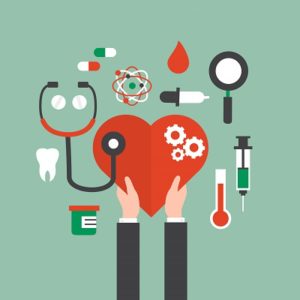 Heart disease kills more people each year than all of the cancers combined. While science may know the causes of some cancers they can only point to most preventative measures that you can take to be sure you don’t experience cancer. Scientists can pinpoint most of the risk factors for heart disease and therefore information on what causes heart disease will help you to decrease your risks.
Heart disease kills more people each year than all of the cancers combined. While science may know the causes of some cancers they can only point to most preventative measures that you can take to be sure you don’t experience cancer. Scientists can pinpoint most of the risk factors for heart disease and therefore information on what causes heart disease will help you to decrease your risks.
There are both lifestyle changes, avoidable risks and familial factors that will increase your risks of heart disease. Most family factors, such as a history of heart disease, high blood pressure, high cholesterol and poor coping methods for stress all have their roots in both behavioral conditions and lifestyle.
For instance, parents who cope poorly with stress often pass those coping mechanisms down to their children through modeling. It is also well documented that children will eat what their parents provide and continue to follow those habits into adulthood.
Most risk factors for heart disease are avoidable, although some will have you believe that your future is just out of your hands. Drug companies want you to take their pills, and then another set of pills to take care of the side effects of the first pills. But most of the factors that increase your risk of heart disease is under your control.
Researchers understand the strong link between smoking and heart disease. In fact more recent research has pointed to the increased risk factors of breathing second hand smoke and heart disease.
Second hand smoke contains at least 50 chemicals known to cause cancer. Non-smokers who are exposed at home or work increase their risk of heart disease by 25% and people who have heart disease are at even greater risk. (1)
Doctors spend hours educating families and patients with information on what causes heart disease when they educated patients on how to prevent heart disease. If you smoke, stop. You are killing yourself, your family, your co-workers and your children.
Unfortunately, smoking isn’t like over eating where you are affecting only your own health. Smoking affects the health of everyone around you.
Know your blood pressure. People with high blood pressure don’t usually have symptoms so it’s important to have your blood pressure monitored at least yearly. Even when your blood pressure has always been within normal limits as your body ages things can change.
High blood pressure puts a greater workload on this 10-ounce pump that delivers over 10,000 beats each day to send oxygenated blood around your body.
Get tested for diabetes. People who suffer from high blood sugar (diabetes) may have no symptoms but this condition will drastically raise your chances of getting heart disease. Your doctor will be able to help you manage this condition so your risk of heart disease decreases.
Controlling your cholesterol and triglyceride levels are another way you can help to prevent heart disease. High blood cholesterol can clog your arteries and keep heart from getting the blood and oxygen that it needs. People with high cholesterol or triglycerides usually have no symptoms at all.
You can almost always lower your levels by eating a balanced diet and getting appropriate exercise. If you don’t want to change your diet you may have to resort to using medication to help lower your cholesterol. These types of medication have some significant side effects that can sometimes be as bad as the heart disease.
More information on what causes heart disease is usually incorporated into weight loss programs because maintaining a healthy weight will also decrease your risk of heart disease. Eating a healthy diet and exercising regularly will help you to maintain a healthy weight.
The final factors on what causes heart disease includes the use of alcohol and handling stress. Alcohol affects the efficiency and effectiveness of the heart muscle on a long-term basis. Limiting the amount of alcohol you drink will also limit your risks of heart disease.
Coping with stress in a healthy fashion will also help to decrease your risk of heart disease. Researchers have found that stress in linked to heart disease and stroke.
Fortunately the information on what causes heart disease is no longer a mystery. And while heart disease continues to rise the factors that increase your risk are preventable with education and some minor lifestyle changes.
(1) American Heart Association Circulation: Cardiovascular Effects of Secondhand Smoke
RESOURCES
National Heart Lung and Blood Institute: What Causes Heart Disease
Seconds Count: Heart and Vascular Disease
Mercola: Cholesterol is NOT the Cause of Heart Disease
Centers for Disease Control and Prevention: Heart Disease and Stroke
Cleveland Clinic: Preventng and Reversing Cardiovascular Disease






